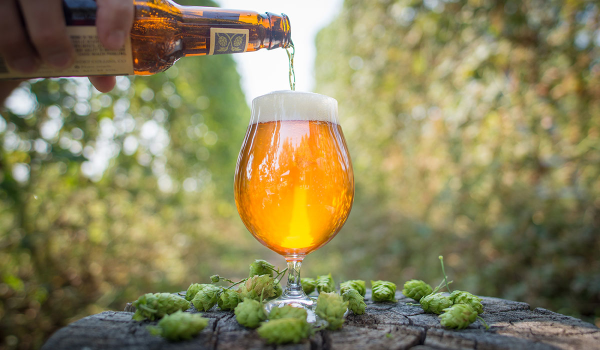As much as today’s American beer drinker seems to like hoppy IPAs and other pale ales, it’s a shame that hops are so expensive to produce and transport. Did you know that it can take 50 pints of water to grow enough hops to produce one pint of craft beer? While hops aren’t critical to beer brewing, they do add essential oils and aromas that turn otherwise flat-tasting beer into delicious suds.
Using UC Berkley’s own simple and affordable CRISPR-CaS9 gene editing system, researchers [Charles Denby] and [Rachel Li] have edited strains of brewer’s yeast to make it taste like hops. These modified strains both ferment the beer and provide the hoppy flavor notes that beer drinkers crave. The notes come from mint and basil genes, which the researchers spliced in to yeast genes along with the CaS9 protein and promoters that help make the edit successful. It was especially challenging because brewer’s yeast has four sets of chromosomes, so they had to do everything four times. Otherwise, the yeast might reject the donor genes.
So, how does it taste? A group of employees from a nearby brewery participated in a blind taste test and agreed that the genetically modified beer tasted even hoppier than the control beer. That’s something to raise a glass to. Call and cab and drive across the break for a quick video.
Have you always wanted to brew your own beer, but don’t know where to start? If you have a sous vide cooker, you’re in luck.











